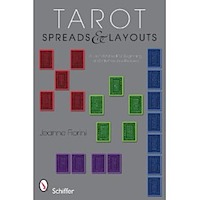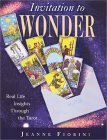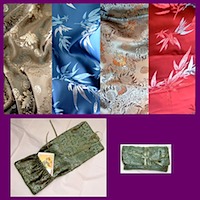By Jeanne Fiorini
I went to college in the mid-70’s, when the uniform of choice was a grubby pair of jeans and a flannel shirt (washed once a week whether they needed it or not), and when the social conscience of the ‘60’s was flowing into another decade. In the third year of study and not quite sure about a career path, I took two sociology courses, the content of which have had continued meaning for me through the years: “Zero Population Growth” (ZPG as it was then called) and “Energy Sources for the Future.”
If I’d been in a coma for the past 35 years and was awakened in this 21st century world, I’d be saying to myself, “Wow, we must have figured out that energy problem ‘cause these people are driving some honkin’ vehicles!” and “The distribution of food and resources must not have become an issue either ‘cause the place is crawling with people.”
I won’t get into a tirade about how the energy and the population problems could have --and should have --been dealt with a long time ago; it’s not a relevant rant for our purposes here. But the tendency to ignore issues until they become crises reminds me of another arena where simple truths have been ignored, and that is in the field of health and medicine.
In 1983, Dr. Andrew Weil’s wonderful book Health and Healing (Houghton Mifflin, Boston, reprinted in 1988) was published. A singular point from this book has stayed with me for the more than 20 years since reading it: Why aren’t we paying more attention to the placebo effect?
Dr. Weil writes that to work with the innate healing capacities of the patient’s mind and body (via administration of placebos) is not voodoo or quackery, but is the best and safest of medical treatments. If a harmless placebo can facilitate wholeness, wellness, strength, and vitality, why aren’t we investigating ways to further such effective and innocuous practice? (I suspect the pharmaceutical companies have something to say about that.)
Because of this ongoing interest in the concept of placebos, how they work and why they work, an article in a magazine recently caught my eye. Entitled A New Take on Placebos, the article recounted a Harvard Medical School study wherein patients who took a placebo-- and who were fully aware that their medication was a placebo-- demonstrated a significant increase in healing when compare to a group which was given no medication whatsoever.
This study suggests that, among other dynamics at work, “the body’s own healing mechanisms can be triggered by simple attention from another person; placebos serve as an acknowledgement that a person is ill and wants to be well.” (The Week, January 14th 2011, page 24)
Aside from the fact that this is exactly what Dr. Weil was saying 27 years ago and so isn’t really breaking news, the Harvard study does well to confirm Dr. Weil’s concept to a new audience. Additionally, and to the point of where this article is going, does anyone else hear something familiar in the phrase “… can be triggered by simple attention from another person?”
This is EXACTLY the paradoxical truth discovered in the mid-1930’s when scientists realized that any event is impacted by -- and in fact created by – the observer of said event. The observer creates reality. This is the quantum reality we are faced with, proven 80 years ago, and yet we still can’t wrap our minds around it! We are so entranced with our individual space on all levels of our experience (physical, emotional, and spiritual) that even though science proves it again and again, we persist in our notions of separateness.
The radical idea that we are --- not need to be trained to be, but already ARE—the creators of our reality, has ramifications for all aspects of life: relationships, personal and community health, work life, levels of happiness and success, politics, expectations, the present, and the future. But what does it this mean for readers of the Tarot?
I’ve written about this in other articles in different contexts, and here we are again: The reader is an observer to the reality of the client. As such, the energy, the information, the guidance, the insight that is imparted to a client becomes part of his/her ongoing reality in an act of co-creation. It is not voodoo or quackery, but an opportunity for life to change, to improve, to be healed, for a person’s reality to be “triggered by simple attention from another person.”
Warning: If we think, as readers, that this co-creation moves only in one direction, think again. Do we, as readers, take the time to consider and appreciate how our lives are impacted by the energy, information, guidance, and insight we receive from our clients? We are the recipients of their “simple attention,” so how have we been altered by the presence of the person who has just left the Tarot table? What did we learn? How have we been made different by the experience of them?
At this point we have to consider not just the presence of, but the nature of the energy, information, guidance, and insight that exists on both sides of the Tarot table. The words “manipulation,” “negativity,” “controlling,” and “pessimism” come to mind, regardless of the camp in which it rests or originates.
We all know how it feels to have been in the presence of a person or situation that reeks of manipulation, negativity, control, and pessimism. These things, like all things, are relative to the observer; that is to say that a certain person might seem grossly pessimistic to one individual and only mildly so to another. Regardless, the slime of such an experience can be tough to shake, and can result in feelings of shame, powerlessness, guilt, and fatalism, the opposite of what we hope to accomplish when reading the Tarot.
And so we’re left with the responsibility for our own awareness, thoughts, and intention. As readers we need to be conscious of the distracting and detrimental energies in ourselves as we participate in the process of a reading, and deal with those of the client as we move along.
After all, we are creating something new each and every time we pull out our Tarot cards. It’s our responsibility to be as clear in our intentions as we can be because we never know who is bringing what to the other side of the creation equation.


